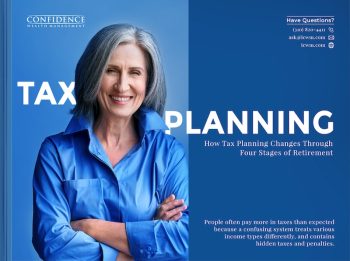Retirement is good and admirable if you have two essentials – much to live on and much to live for. But sometimes, it can be overwhelming to decide on one’s retirement account when preparing for retirement.
You may feel this way because you feel you have little knowledge of investments. However, your feelings are understandable.
To that effect, I have five basic rules to share that will help you make smarter choices regardless of your experience in investing
Don’t Lose Ground On Inflation
It’s easy to see how inflation has affected gas prices, electric bills, and the cost of food in recent times.
As a result, keeping pace with inflation with regard to your investments is a way to stay ahead as you begin your retirement plans.
A few ways to do this is by:
- Increasing your 401k contribution enough each year to overcome the effects of inflation, at least until you hit your plan’s contribution limits.
- Investing at least a portion of your retirement plan in investments that can keep inflation from silently eating at the purchasing power of your savings.
- This means you avoid keeping huge cash in your bank account, as cash will most likely lose its purchasing power when inflation arises.
- Consider the stock exchange.
- Though it has a greater risk of volatility, it has historically had higher long-term total returns than cash alternatives or bonds.
Invest Based on Your Time Horizon
Your time horizon is about how much time you have left until you use the money you’ve planned to invest.
In this aspect, the longer time a person has before using the funds invested, the better the chances of getting a significant percentage of the money.
It may be a good approach as there could be more dramatic price changes, leading to more potential for long-term growth.
In contrast, if you’re retiring soon, the ups and downs of the stock market may hinder your investment and profit-making chances.
With this in mind, thinking of long-term goals with your portfolio will help you diversify, counter market downturns, and put you in a position to improve your opportunities again.
Consider Your Risk Tolerance
Your risk tolerance is basically how you handle a possible investment loss. If you’re a person who quickly gets emotional and sick about financial loss, I advise you to consider reducing the amount of risk in your portfolio.
You see, having the financial ability to survive a loss is one attribute of being a good investor. As a result, if you plan to use your retirement savings next year or very soon, those needs reduce your ability to withstand even a small loss.
However, if you are investing for the long-term, you have an advantage, especially if you understand each investment’s potential risks and rewards. This will help you gauge your risk tolerance.
Integrate Retirement With Your Other Financial Goals
One way you can do this is to have emergency funds. This will help you avoid the temptation of tapping into your retirement savings, which would not benefit you in the long run.
If you have outstanding debt, weigh the benefits of saving for retirement versus paying off that debt as soon as possible.
If your interest rate is high, you can pay off at least part of your debt first.
By and large, cultivate the habit of having emergency funds so that your retirement money can stay invested.
Don’t Put All Your Eggs In One Basket
Since an investor is a risk taker, it is good to diversify your investment savings across different types of investments to manage the ups and downs of your portfolio.
Different investments come with different risks. For example, Bonds have their own risk because sometimes a bond issuer will not be able to pay the interest owed on its bonds.
Foreign exchange is another risk, as exchange rates between U.S. and foreign currencies affect the value of foreign investment.
No matter how the financial market may be, a way of staying ahead as an investor is to invest in several types of investments, such as stocks, bonds, and cash alternatives.
In Conclusion
Giving thought to investing as one prepares for retirement is an excellent option to stay ahead of turbulent financial times.
Please connect with us and let us help you plan for your dream retirement. We would be delighted to go on the journey with you.








